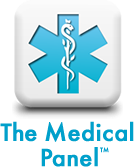Electronic Health Records: Why Handcuff Healthcare?
 Electronic Health Records (EHRs) have been a hot topic of debate in recent years. With the world becoming more and more dependent on technology, and, specifically, with President Obama’s Health Information Technology for Economic and Clinical Health (HITECH) Act incentivizing EHRs, hospitals and doctors have been doing their best to go paperless and implement EHR systems. Unfortunately, as many readers will know, it hasn’t been going very smoothly.
Electronic Health Records (EHRs) have been a hot topic of debate in recent years. With the world becoming more and more dependent on technology, and, specifically, with President Obama’s Health Information Technology for Economic and Clinical Health (HITECH) Act incentivizing EHRs, hospitals and doctors have been doing their best to go paperless and implement EHR systems. Unfortunately, as many readers will know, it hasn’t been going very smoothly.
In theory (and in some realities, like Kaiser Permanente), EHRs should reduce costs, increase productivity, and improve patient care through an electronic system that can communicate individual patient records across hospitals and departments, keep track of a patient’s history and remind them when to come in for check ups and procedures, and improve the accuracy of doctors’ diagnoses. In practice, however, many systems aren’t intuitive enough and don’t provide the interoperability necessary to benefit healthcare professionals.
Conversely, a number of health systems and hospitals are making gigantic strides in working within their system by sharing info between physicians for better solving cases. One example is MD Anderson teaming with IBM super-computer Watson to synthesize the vast array of historical and present-day cancer data, for their doctors’ access, to more effectively fight cancer. The University of California’s system is also extremely impressive, with their rural doctors being able to consult with their other leading doctors via video conferencing in 30 specialty areas. But patients cannot readily access their own EHRs. nor can an emergency room (at a hospital or system that the patient isn’t registered with which currently uses an effective EHR system) immediately tap into the patient’s health records for the best treatment when timing is critical.
How can we solve this issue? First and foremost, patients need to rise up and demand instant access to all their health records. Why is one’s own health background impossible to access and share with multiple doctors? Instead of ease of access, patients are required to sign multiple forms at multiple institutions and pay fees to transfer records – just so one specialist or new doctor (or ER physician) can find the information they need. If patients could simply and easily choose who to share their medical record with, a significant amount of time and energy could be saved. In addition, all EHR systems should be able to communicate seamlessly to provide any doctor anywhere vital access to the patient’s records in order to provide the best treatment. Why handcuff healthcare?
We believe that our new healthcare panel, TheMedicalPanel.com, for all medical and industry professionals around the planet, and ultimately all patients, patient advocates, support groups, and associations, may serve to help find a solution to that gap. Imagine accessing one’s own EHR and sharing it with a group of specialists to solve the health issue that won’t go away. Clearly, information is still king – that’s why we at Resolution Research are passionate about effecting change in such a critical time in healthcare. Our goal is to bring the data and the right people together.
If you work in the medical industry, please join TheMedicalPanel to participate in (paid) research studies and to collaborate with your colleagues. If you’re a patient – and who isn’t – join www.ResolutionPanel.com and indicate your medical conditions to participate in paid studies and/or clinical trials, which focus on your particular disease or condition. If you represent a medical association or group determined to find the cure, join us. Finally, to complete the circle, if your group needs research in the medical arena, contact us – our community has the patients and medical professionals necessary, as well as the experience, to provide the insights needed.
Resolution Research has been in the market research business since 1990. Nina Nichols is the founder and active CEO of Resolution Research and The Medical Panel. You may reach her at nina@themedicalpanel.com or 303-830-2345 or follow her on twitter at NinaNichols.
Gain more information online at:
The Medical Panel on Twitter @MedPanelTweets

